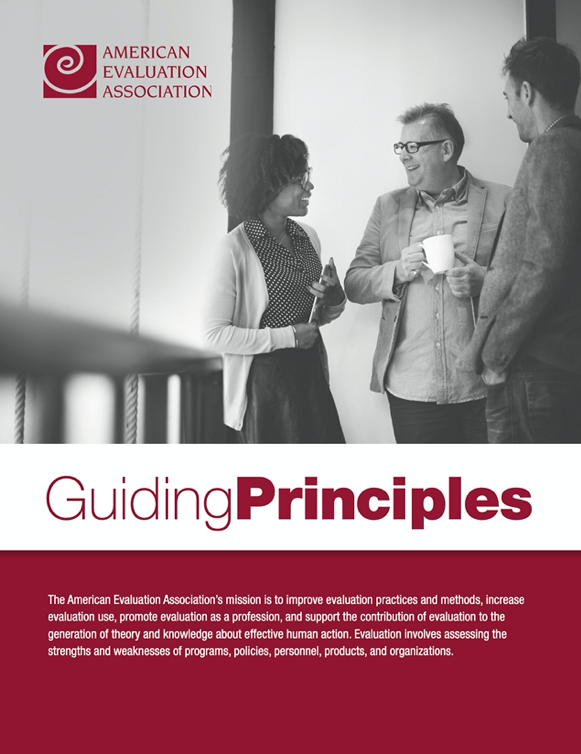I am Mónica Ruiz-Casares, member of the AEA Guiding Principles Working Group (GPWG).I am Associate Professor in the Division of Social and Transcultural Psychiatry at McGill University, Researcher at the Sherpa University Institute, and Credentialed Evaluator by the Canadian Evaluation Society. An active member of AEA for the past 25 years, I regularly teach and publish on ethics in research and evaluation, mostly in international development and involving young people. The GPWG is tasked with finding creative ways to build awareness of the AEA Evaluators’ Ethical Guiding Principles among AEA members. This is the first in a series of aea365 blog posts developed by the GPWG to raise awareness, share resources, and encourage reflective practice.

Sound ethical reasoning is at the core of good evaluation practice. The AEA has valuable resources to guide the professional ethical conduct of evaluators, such as the Statement On Cultural Competence in Evaluation and the Guiding Principles. Revised every five years since their first adoption in 1994, the Guiding Principles were last updated and adopted by AEA in 2018. New this year, submitters to the conference were required to select the principles most relevant to their proposed topic. You can read about the five interconnected and interdependent principles addressing systematic inquiry, competence, integrity, respect for people, and common good and equity here.
Hot Tips:
To boost your ethical reflection muscle and contribute to making the Guiding Principles better known and used:
- Consult with colleagues on how best to identify and address ethical issues in your evaluation practice at all stages of an evaluation, particularly when the principles conflict with one another;
- Mull over the principles, drawing selectively from your own experience to illustrate each of the sub-statements;
- Initiate discussion of ethical issues with your evaluation clients and other stakeholders, and provide them with the Guiding Principles brochure;
- Participate in a virtual Town Hall with members of the GPWG—Register for the first one coming up on Friday, May 8th! ;
- Watch out for sessions and a professional development workshop hosted by the GPWG at the annual conference;
- Spearhead a Guiding Principles club or discussion group in your organization;
- Contact the GPWG at info@eval.org to share interesting cases we may adapt and use as teaching tools or share your ideas on how to enhance dissemination and engagement with the principles.
Rad Resources:
- You can download the Guiding Principles in PDF format here. To obtain hardcopies of the Guiding Principles, please contact the AEA office at info@eval.org or 202-367-1166.
- Keep reading aea365! More tips and resources coming up in future blog posts.
This post is part of an occasional series on the AEA Guiding Principles. Each post in the series was contributed by a member of the AEA Guiding Principles Working Group. Do you have questions, concerns, kudos, or content to extend this aea365 contribution? Please add them in the comments section for this post on the aea365 webpage so that we may enrich our community of practice. Would you like to submit an aea365 Tip? Please send a note of interest to aea365@eval.org. aea365 is sponsored by the American Evaluation Association and provides a Tip-a-Day by and for evaluators.

I agree that having ethics at the forefront in every evaluation is crucial. I encourage all of us to ask ourselves what is the meaning of an ethical evaluation in the context of supporting transformative change towards increased social, economic, and environmental justice. How do we adapt our designs and engagement with stakeholders to address this challenge?